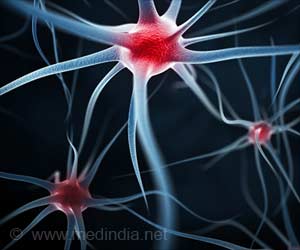Anti-Müllerian hormone (AMH) might play a role in developing a novel contraceptive, aid in treatments for infertility and be useful in protecting the future fertility of women undergoing chemotherapy.

‘"Preserving the fertility of women undergoing chemotherapy by protecting the follicles will have a big impact on the quality of life for women of reproductive age".’
Read More..




"When you introduce AMH signaling you can stop the ovarian follicles very early on from developing into eggs in the ovaries," says Thompson. "That’s the angle where you have this for a potential contraceptive. If you can enhance AMH signaling you can stop the follicles from being selected for growth."Read More..
Scientists are considering this for female cancer patients undergoing chemotherapy.
"Chemotherapy can damage follicles and cause less fertility over time," Thompson explains "If you can put the brakes on the reproductive process, you can actually protect the ovary and possibly maintain the ability to have children after chemotherapy."
Research findings from Thompson and lead author Kaitlin Hart, a doctoral student in UC Department of Pharmacology and Systems Physiology, are available in the Proceedings of the National Academy of Sciences (PNAS).
Thompson and Hart with researchers from Harvard Medical School, including Nicholas Nagykery, Patricia Donahoe, MD, and David Pépin, PhD, who have tested AMH in animal models.
Advertisement
Knowing how AMH interacts with its receptor might also help find a better treatment for polycystic ovary syndrome (PCOS), which is one of the most common causes of female infertility affecting up to 12% of women of reproductive age.
Advertisement
Animal well-being might also receive a boost with development of a contraceptive that uses AMH.
The knowledge UC researchers provided will benefit a project spearheaded by the Cincinnati Zoo & Botanical Garden to reduce the population of feral cats. Officials at the Cincinnati Zoo are working with the researchers from Harvard Medical School who are collaborators on the research from Thompson’s laboratory.
"They are developing AMH as a temporary nonsurgical sterilization option," explains Hart. "Instead of capturing cats to neuter, spay and release, you could deliver a therapy based on AMH that could achieve the same result with a single injection.
We now understand the interaction between AMH and its receptor so we can contemplate targeted changes to the interfaces to increase that interaction and make AMH more potent."
Bill Swanson, DVM, PhD, director of animal research for the Cincinnati Zoo, says "early results have been promising and we are optimistic that this approach will be useful for reducing feral cat overpopulation."
Source-Medindia












